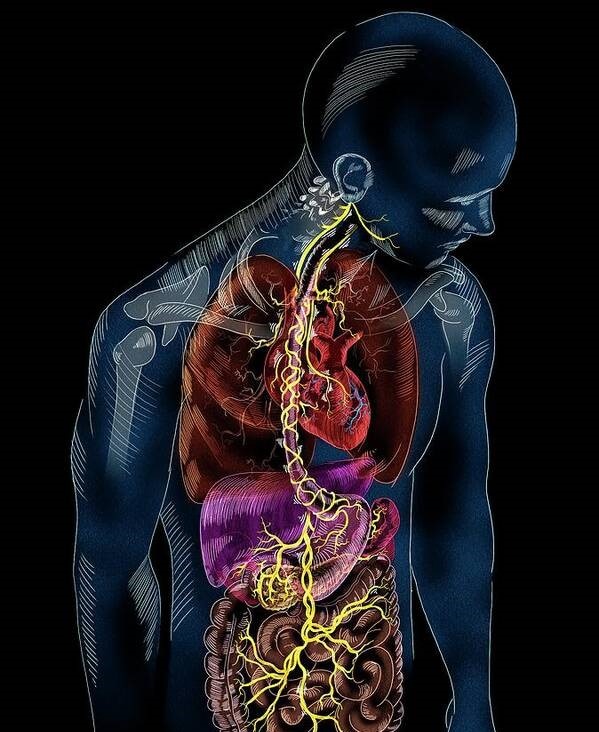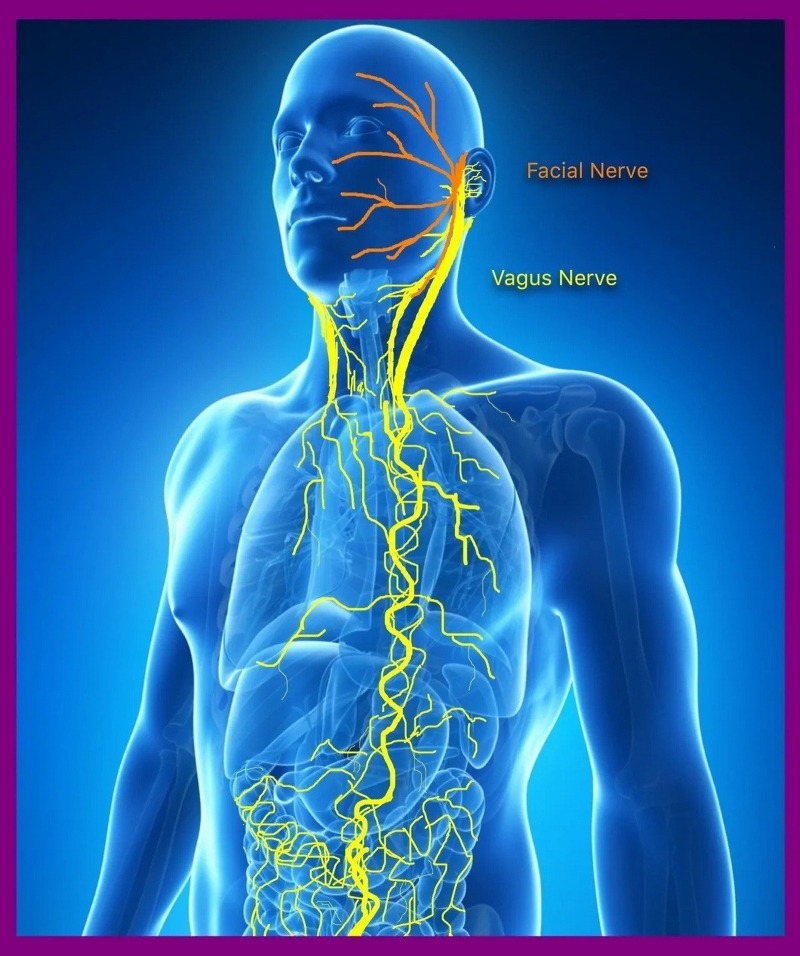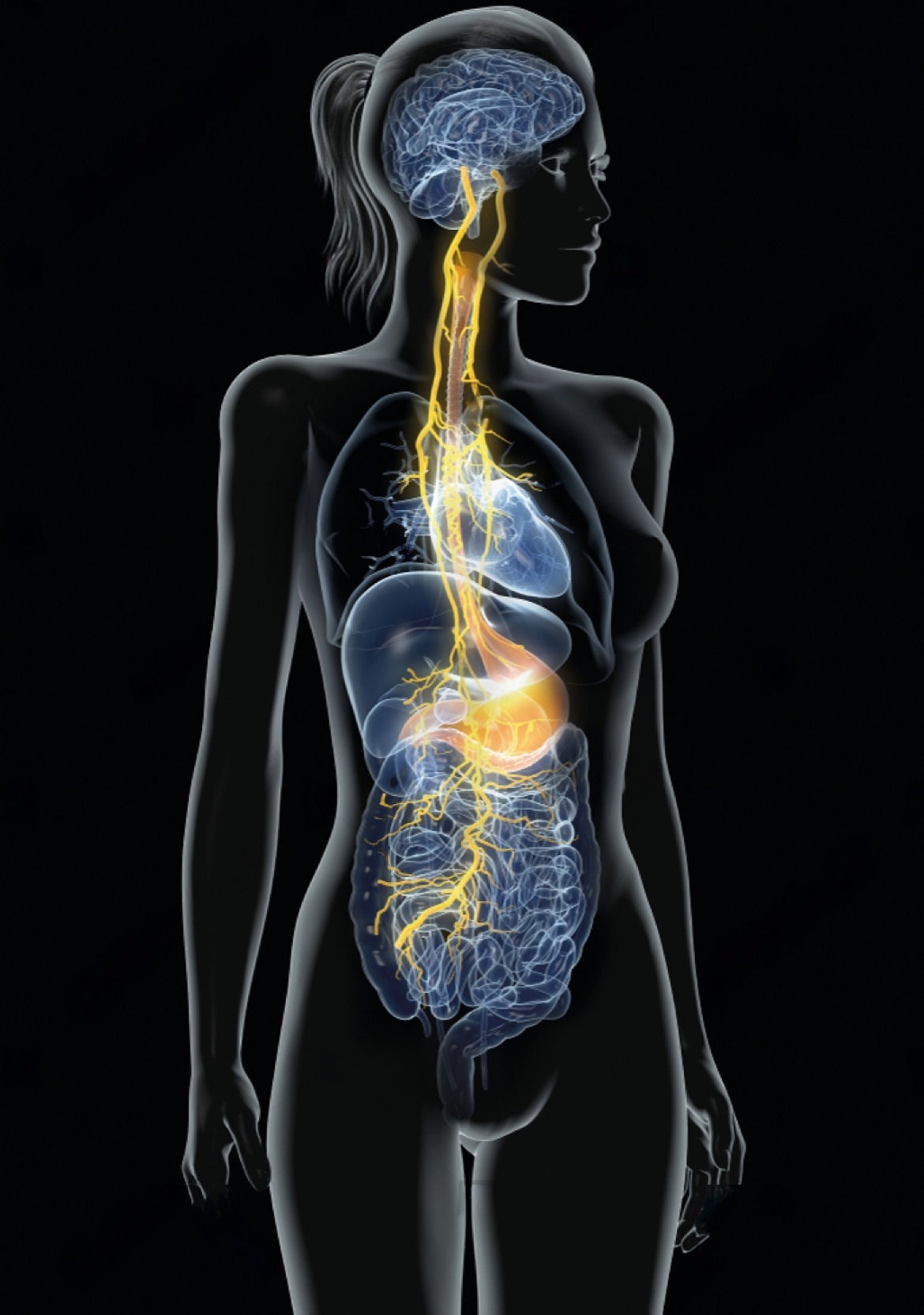Imagine a superhighway inside your body that connects your brain to your most important organs! That’s basically the vagus nerve, also known as the pneumogastric nerve (fancy science name!). It’s the longest nerve in this special system that controls things your body does automatically, like digestion and breathing.
Think of it this way: your brain has 12 “outgoing message” nerves, but the vagus nerve is the only one that goes all the way down to your belly. It’s like the boss, telling your heart to beat at a steady rhythm, even when you’re unconscious. That’s why it’s kind of a life-saver! Plus, a whopping 90% of your brain’s power is used to keep this whole automatic system running smoothly – that’s a lot of brainpower for such an important job!
The Vagus/Heart Connection
Ever feel your heart skip a beat when you have a stomachache? It’s not a coincidence! Remember that superhighway nerve, the vagus nerve, connecting your brain to your gut and heart? Normally, this nerve keeps your heart rate steady, even when you’re asleep. But sometimes, if your digestive system is unhappy, it can send confusing messages along the vagus nerve, making your heart flutter or pound – that’s a heart palpitation!

This can be scary, but there are ways to calm things down using the same superhighway! Simple things like deep breathing, eating healthy, and chewing your food properly can all help send calming messages back to your heart.
The Vagus/Lung Connection

Normally, the vagus nerve acts like a conductor, telling your heart to beat at a steady rhythm and even helping your lungs stay relaxed and open during deep breaths. But shallow breathing, like when you’re stressed or anxious, can actually stimulate the vagus nerve in a different way. Imagine a traffic jam on the superhighway! This confusing information can make the vagus nerve signal your airways to constrict, making breathing feel difficult.
That’s why deep breathing exercises are a key part of meditation – they help send calming messages down the vagus nerve to both your heart and lungs. But here’s the cool part: even without meditating, you can train your vagus nerve to be calmer! Regular exercise, especially activities that get your heart rate up but let you breathe steadily, like swimming, running, or brisk walking, can strengthen your vagus nerve and make it more resilient to stress. So next time you feel anxious, take a few deep breaths and get your body moving – it’s a natural vagus nerve tune-up!
The Vagus Nerve and You
Beyond its role in calming your heart and lungs, the vagus nerve offers a powerful tool for managing stress. The vagus nerve is like your body’s built-in chill pill. This remarkable nerve acts as that superhighway, carrying messages between your brain and many of your organs, including your heart, lungs, and gut. When stress hits, the vagus nerve usually slams on the brakes, slowing your heart rate, lowering your blood pressure, and promoting feelings of calm. It’s like a conductor in your orchestra of relaxation, ensuring everything works together smoothly.
Unfortunately, chronic stress can overwork your vagus nerve, making it sluggish and hindering its ability to keep you calm. But the good news is, you can show your vagus nerve some love and help it thrive! Deep breathing exercises, where you slowly inhale and exhale, directly activate the nerve’s calming effects. Gentle massage on the sides of your neck, where the vagus nerve emerges, can also send soothing signals. Even simple acts like gargling with cold water or humming a tune can stimulate the vagus nerve and promote relaxation. By incorporating these practices into your daily routine, you can strengthen your vagus nerve and build resilience against stress, keeping your body and mind in harmony.
What You Can Do
Feeling overwhelmed by stress? Don’t wait! Take charge of your well-being and unlock the power of your vagus nerve. By incorporating these simple techniques into your daily life, you can cultivate a calmer, more resilient you.
Want to explore personalized strategies for stress management and relaxation? Here at True Wellness Therapies in Saddle River, New Jersey, we offer a range of holistic therapies designed to support your unique needs. From massage therapy to Deep Myofascial Cupping to ElectronsPlus which is a hand guided PEMF modality we can help you discover a path to greater peace and well-being.
Contact us today and let’s work together to create a stress-free you! Remember, a calmer, happier you is just a breath away.

